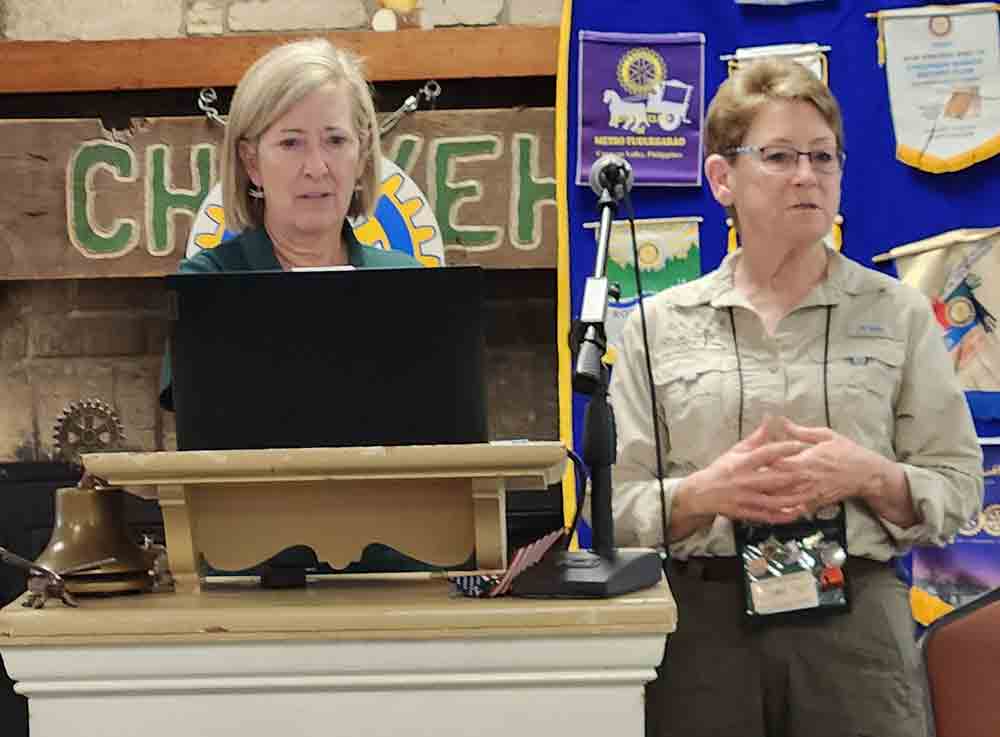
By Emily Banks Wooten
[email protected]
Tina Crichfield and Jessica Jones, current chapter president and vice president, respectively, of the Piney Wood Lakes Chapter Texas Master Naturalist, recently spoke to the Rotary Club of Livingston about some of their programs.
“Our mission is to educate ourselves to learn as much as we can from Texas Parks & Wildlife Department (TPWD) and Texas A&M AgriLife Extension Service so we can bring that knowledge to our communities, promote natural resources and provide education through outreach events, public understanding and volunteer work,” Chrichfield said.
“We’re hosting an East Texas Conservation Expo in September at the Polk County Commerce Center where we’ll have members that specialize in different areas providing programs on forestry and timber management, pond management and water quality, wildlife management, pasture restoration, prescribed fire, integrated pest management, cost share programs, conservation agencies, fish habitat, pollinator protection, land management planning, native planting and youth activities. Any way we can serve the community we want to,” Crichfield said.
To become a Texas Master Naturalist, one must complete 40 hours of initial training over 11-12 weeks provided by TPWD, Texas A&M professors and entomologists; then complete eight hours of advanced training and 40 hours of service; then the following year, complete 40 hours community service and eight hours of advanced training. New classes start every February.
“What do we do?” Jones asked. She told of being a city girl in Houston all her life and then moving to the country and purchasing 17 acres and not knowing what to do with it or how to take care of it.
“You learn so much through this group such as how to do good land stewardship. These are passionate people. The key is to educate people. Most of our current projects fall into one of three categories – citizen science projects, community outreach or school outreach. We’ll do anything to get these kids involved in nature. Nature is good for mental health,” Jones said.
As an example, Jones talked about pollinator gardens for Monarch butterflies.
“Monarchs have a huge migration path. They have to have milkweed to eat. Milkweed is the key. Through evolution, they have developed a relationship with milkweed. That’s where they lay their eggs. Pollinators are absolutely critical. Eighty percent of our food comes from pollinators. Right now, there’s about 45,000 Monarch waystations,” Jones said.
For more information about the Piney Wood Lakes Chapter Texas Master Naturalist, go to www.txmn.org/pineywoodlakes or visit their Facebook page.









Comment
Comments